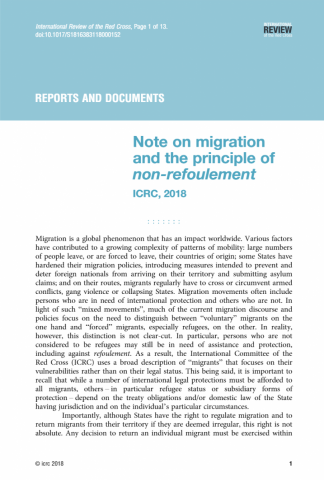Knowledge Platform
Note on migration and the principle of non refoulement
Throughout history, high numbers of persons have left, or have been forced to leave, their countries of origin. In order to protect migrants or refugees against being returned to places in which their fundamental rights are in danger, States have developed the principle of non-refoulement. This principle, reflected in different bodies of international law, protects any person from being transferred (returned, expelled, extradited—whatever term is used) from one authority to another when there are substantial grounds for believing that the person would be in danger of being subjected to violations of certain fundamental rights. The principle is multi-faceted and its scope and application vary from context to context in accordance with the applicable law. The present note recalls the legal basis of the principle of non-refoulement in different bodies of international law, examines its scope of application, and presents how certain aspects of the principle have been interpreted by States, courts, human rights treaty bodies, or expert organizations.
